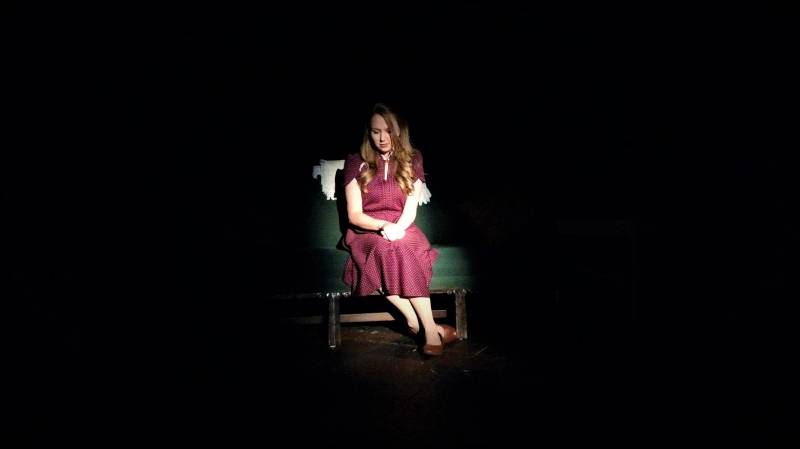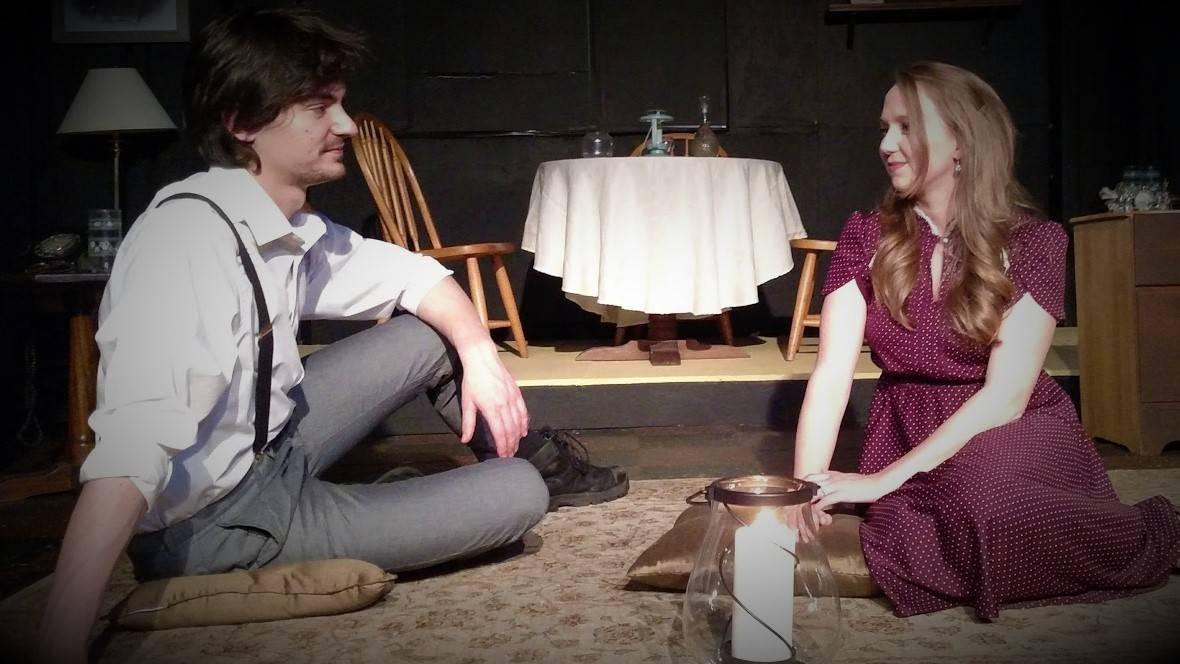The Glass Menagerie by Tennessee Williams first premiered in Chicago in 1944 and in many ways brought Williams into the limelight as a playwright. The following year, it went on to Broadway and won the New York Drama Critics’ Circle Award for Best American Play and over the next several decades would be featured at theaters across the country (and world) countless times. It has also gone through several film adaptations and has made its way into the curriculum of many high school literature classes. It is, without a doubt, an American classic, and while my opinion as a writer and general lover of theater might be skewed, I think it is a play that everyone should make the effort to see at some point.

And as it so happens, the Monticello Theatre Association will be putting on a production at the end of February and into early March. As a major fan of the play, I spoke with the director Dustin Leroy Yocum to discuss the upcoming production.
Smile Politely: So for those of us who are not as familiar with this play, what is this show about? What are the main themes?
Dustin Leroy Yocum: The show is a semi-autobiographical memory play written by Tennessee Williams. It opened on Broadway in 1945. The play is set in St. Louis during the thirties and is narrated by Tom Wingfield, an aspiring writer who is stuck in a blue-collar job at a warehouse to support his mother and sister. The action is framed by Tom’s memories and he is both the narrator and a participant in the events that unfold. The patriarch of the Wingfields abandoned the family years ago and Tom has grown increasingly disillusioned with providing financial security for the family and his inability to escape the mundane realities of his position. Amanda Wingfield, prone to waxing poetic about her southern upbringing and projecting it on Tom’s sister, Laura, is determined to provide security for her daughter’s future. Laura is a fragile and cripplingly shy young woman who fills her days with old records and a small collection of glass that she tends to. After a failed attempt at enrolling Laura in business school, Amanda is convinced the best thing for Laura is to find a husband who can provide for her. Though Tom believes Amanda to be overbearing and meddlesome, he eventually agrees to bring home a colleague from the warehouse to meet Laura. The introduction of Tom’s co-worker into the Wingfield’s lives unravels the tenuous thread holding the family together.
The main themes of the play are family, the inability to accept reality, the inability to escape from the past, and the power of memory.
SP: What made you want to work on this show? Is this your first time directing? What else have you worked on?
Yocum: I’ve always been a fan of Tennessee Williams, but have only recently read this play. I read it as part of a book club, actually. I was a much bigger fan than the rest of our group. As I defended my arguments to the group, I kept coming back to “But, think about how beautiful this would be on stage!” I guess you can call it my attempt to prove this play’s beauty to my group of friends.
This is my first full directing attempt. I worked as assistant director on The Foreigner at the Station Theater last year and directed one of the 10-minute plays featured in the Gun Play Series. I’m also directing The Mountaintop by Katori Hall at the SoDo theater in early May.

SP: What have been the challenges of working on this show? The successes?
Yocum: The real challenge for me has been managing all the non-director aspects of putting the show together. Perhaps it’s because I’m a first time director, but it has been humbling to see all the hard work that goes into making words on paper come to life on stage. It’s not just the director or the producer. It’s a collaboration between producers, directors, technicians, actors, and community volunteers. Everyone that has helped me has been incredible and I can’t thank them enough. Especially my wife and assistant director, Kaitlin, who has had her hand in just about everything during this process – she has been incredibly supportive. I suppose I’ve known how hard theater folks work to make a production successful, but it has been a challenging experience for me being the one expected to have the answers.
As for successes, I’ve thoroughly enjoyed watching the actors develop their characters and shape their roles. From our table reads early in the process to now, the cast members have been 100% dedicated to this show.
SP: What can the audience look forward to? Any moments, characters, costumes, set elements?
Yocum: The audience can look forward to a production that is rich in details. From the set , lighting, and sound design, to the use of props, every part of this production relates back to the fickleness of memory. The play begins with a lengthy monologue that sets up the details and parameters of the production. For example, Tom talks about how memories are often shrouded in dim light and set to music. My goal with the production was to make the audience feel like they are actually experiencing Tom’s memory. It’s important to remember that memory is often unreliable, distant, dreamlike, and constructed. I hope some of these details come through either consciously or subconsciously for the audience.
SP: Anything else you’d like to tell a potential audience member?
Yocum: I know that Monticello is a bit of a haul for the Champaign-Urbana folks, but I hope that you’ll come out and support a great theater in a great town – maybe stop and get a beer and bite to eat before the show. The Phoenix Theater is a wonderful space and features several well-done productions every year. If you love theater and haven’t seen a show in Monticello, you’re really missing out.
_______________________________________________________________________
The Glass Menagerie will be shown on Feb. 24th, March 2nd, and March 3rd at 7:30 p.m. and Feb. 25th and March 4th at 2:30 p.m. Tickets are $12.50 and can be purchased here. The theater is located at 1406 N. Market St., Monticello, IL.








